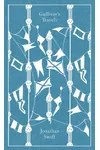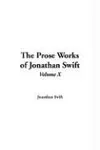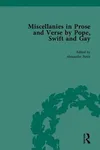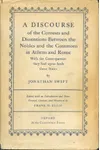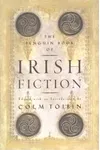Picture an Anglo-Irish satirist who wielded wit like a weapon, slicing through human folly with a pen sharper than a sword—meet Jonathan Swift! Best known for Gulliver’s Travels, Swift crafted stories and essays that blended biting humor with profound insight, leaving a legacy that still sparks debate and delight centuries later.
Born in 1667 in Dublin, Swift’s life was a whirlwind of literary brilliance, political maneuvering, and personal enigma. From fantastical voyages to scandalous pamphlets, his work challenged societal norms and cemented his place as a titan of English literature.
The Making of Jonathan Swift
Jonathan Swift entered the world in Dublin, Ireland, on November 30, 1667, under turbulent circumstances. His father died before his birth, leaving young Swift to be raised by relatives. Educated at Trinity College, Dublin, he later moved to England, serving as a secretary to Sir William Temple, a diplomat. This role exposed Swift to political and intellectual circles, shaping his sharp worldview. Ordained as an Anglican priest, he returned to Ireland, where his writing career began to flourish, fueled by a disdain for injustice and hypocrisy.
Jonathan Swift’s Unforgettable Works
Swift’s masterpiece, Gulliver’s Travels (1726), is a satirical tour de force masquerading as a travelogue. Through Lemuel Gulliver’s adventures in lands like Lilliput and Brobdingnag, Swift skewers politics, human nature, and societal absurdities with razor-sharp wit. The book’s enduring appeal lies in its layered humor—accessible to children yet profoundly critical for adults.
Beyond Gulliver, Swift’s A Modest Proposal (1729) shocked readers with its darkly comedic suggestion to alleviate Irish poverty by selling children as food. This audacious pamphlet exposed the cruelty of colonial policies with unmatched irony. Other works, like The Battle of the Books (1704) and A Tale of a Tub (1704), showcased his versatility, blending allegory and satire to critique literature and religion.
Swift’s style was fearless, blending irony, exaggeration, and moral outrage. His ability to cloak radical ideas in humor made his critiques both palatable and piercing, influencing generations of writers and thinkers.
Why Jonathan Swift Matters
Swift’s legacy transcends his era, as his incisive commentary on power, greed, and human flaws remains strikingly relevant. Gulliver’s Travels inspired countless adaptations and remains a staple in literature courses, while A Modest Proposal is a benchmark for political satire. His work laid the groundwork for modern satirists, from Mark Twain to Jon Stewart, proving that humor can be a powerful tool for change.
Swift’s influence also extends to his advocacy for Irish rights, challenging English oppression through his writings. Despite personal struggles, including health issues and rumored romantic mysteries, his voice never wavered, earning him a lasting place in literary history.
About Jonathan Swift
- Born: November 30, 1667, Dublin, Ireland
- Died: October 19, 1745, Dublin, Ireland
- Key Works: Gulliver’s Travels, A Modest Proposal, A Tale of a Tub
- Notable Fact: Swift wrote under pseudonyms like Isaac Bickerstaff to dodge censorship.
Snag a copy of Gulliver’s Travels and dive into Jonathan Swift’s wickedly clever world of satire!
